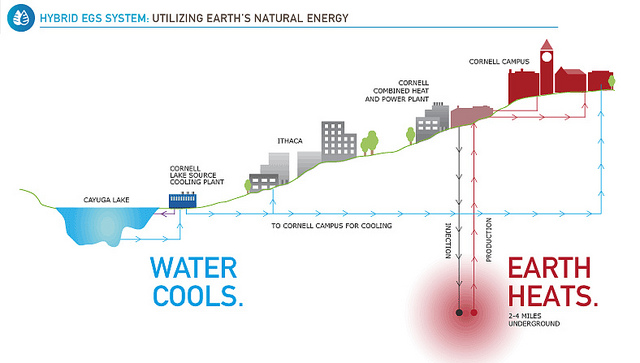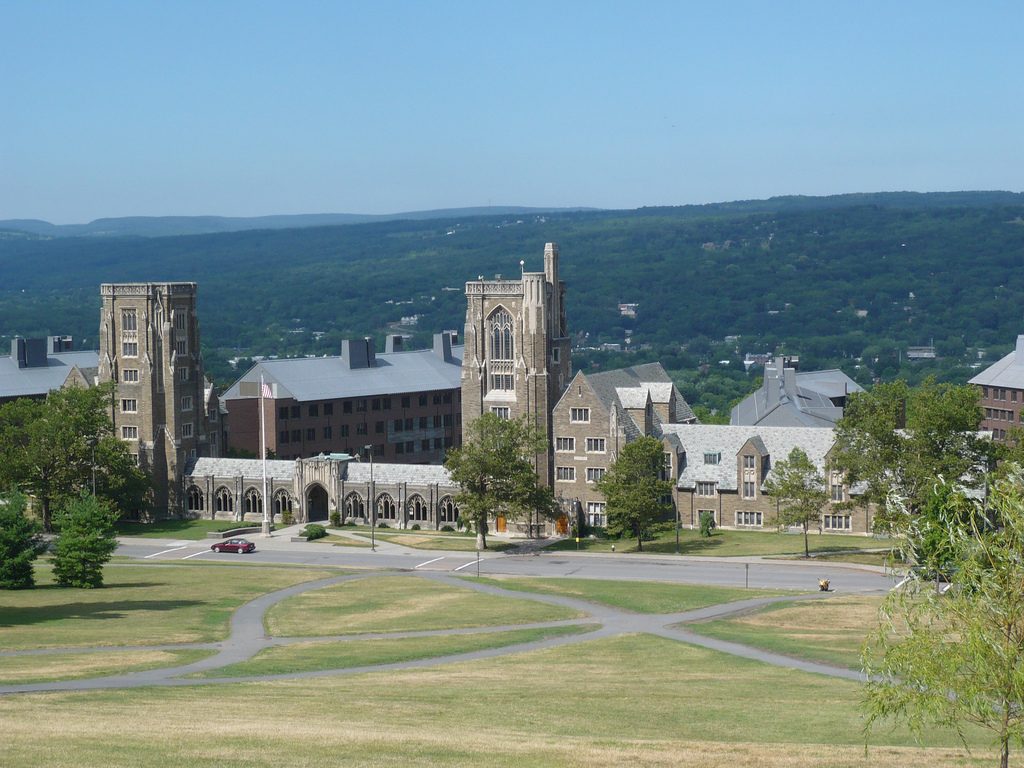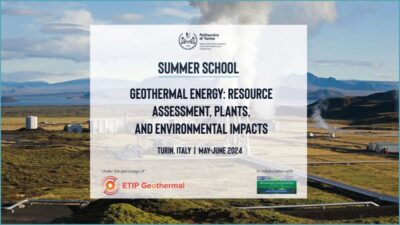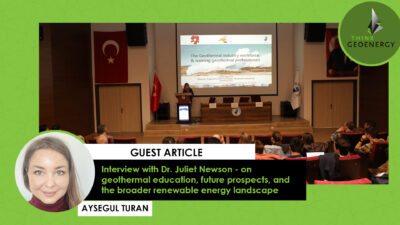Cornell University moving ahead with geothermal heating project
Evaluating various renewable energy options to fuel Cornell University's carbon neutrality plans, geothermal energy has now been found to be the best option with several wells to supply heating to the campus of the school in New York State in the U.S.
Having reported on the ambitious geothermal energy plans by Cornell University in Ithaca, New York, it now seems like the project will move ahead.
A Senior Leaders Climate Action Group of the University presented findings of a study on the schools goal of becoming a carbon neutral campus within 20 years. One of the elements of the action plan, includes geothermal heating which could help the school to reduce its carbon footprint by nearly 40 percent.
In the report that looked into how the school can achieve a Carbon Neutral Campus by 2035, the group looked at geothermal, wind, water, solar and biomass, but choose one option. So with plans to drill wells of up to 3,000 to 6,000 meters (2-4 miles) and circulate water through these wells to be heated and used as heating source on the surface, geothermal energy could become a key source of energy for the school.
It is estimated that $12-15 million for the initial two-wells, limited operation test processes and the research needed would be required.
“Lance Collins, the school’s Dean of Engineering, said Phase 1 will take a year, to find the acceptable spot to drill, then Phase 2 of Drilling will take 3-5 years. If the project is not working at that point, Collins said they would attempt to re-adjust, either stopping the project or examining a heat pump alternative option. That would leave as much as a six year period before the initial success of the project is determined, though it was noted that is a rough estimate and most of the time would be spent acquiring the necessary permits and moving through the city’s bureaucratic processes, not actually drilling. The report itself sets a hard deadline of finding a final course of action before 2025 if the university is to meet its 2035 goal. ”

Source: Ithaca


















